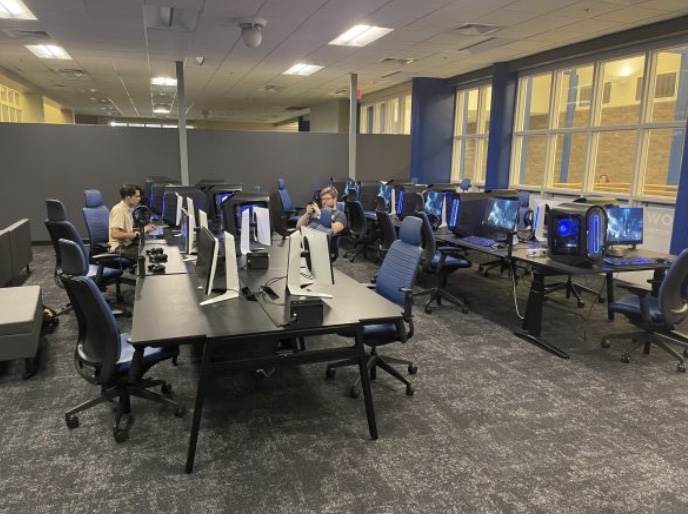The perception of video games underwent a significant transformation in recent years. Once dismissed as mere entertainment, gaming is now recognized as a powerful platform for mental stimulation, social connection and emotional resilience. Through interviews with three student gamers – Sage Tolentino, Kam Taylor, and Ju Clarke, I gathered insight into how gaming shapes cognitive development, social lives and emotional well-being.
Mental Stimulation: Exercising the Brain
Sage Tolentino, a 20-year-old computer science major and dedicated strategy game player, credits gaming for enhancing his critical thinking and adaptability.
“When I’m deep into a complex strategy game, I can feel my brain working overtime,” he said. “It’s not just about quick reflexes; I’m constantly analyzing, strategizing and problem-solving. These games challenge me to think critically and adapt quickly, skills that have definitely carried over into my studies and daily life.”
Recent research supports Sage’s experience, demonstrating that video games – especially those in the strategy and action genres can improve executive function, visuospatial perception and problem-solving skills across both clinical and nonclinical populations. Games such as Portal 2 and role-playing games (RPGs) have also been linked to enhanced goal-setting and motivation, further contributing to cognitive growth.
Social Interaction: Building Connections Through Play
Kam Taylor, an 18-year-old sociology student, regularly participates in multiplayer online games and emphasizes the social benefits.
“For me, gaming has been a fantastic way to meet new people and maintain friendships, especially during times when in-person interactions were limited,” Kam said. “Multiplayer games create a shared experience that makes it easier to bond with others. I’ve made some of my closest friends through gaming communities, and we support each other both in-game and in real life.”
Studies confirm that video games have become a deeply social form of entertainment, with over 70% of gamers playing with friends, either cooperatively or competitively. These virtual interactions foster social skills, cooperation, and even leadership, as players often take on roles that require teamwork and communication. For many, especially those who are geographically isolated or socially inhibited, gaming provides a welcoming environment to connect and build friendships.
Emotional Resilience: Learning from Virtual Challenges
Ju Clarke, a 22-year-old psychology student who enjoys narrative-driven games, discussed how gaming helped her build emotional resilience.
“Video games provide a safe space to experience failure and learn from it,” she says. “When I face a tough boss or a challenging puzzle, I might fail multiple times, but each attempt teaches me something new. This process has helped me develop patience and perseverance that I apply to real-world challenges. It’s like a training ground for emotional resilience.”
Research highlights that games can facilitate emotional regulation and mood repair, helping players cope with strong emotions and setbacks. Casual games and those with narrative depth have been shown to decrease negative affect and promote enjoyment and motivation, supporting mental well-being. A landmark 2024 study found that gaming, particularly on consoles like the Nintendo Switch, can significantly improve mental health and life satisfaction, challenging the stereotype that games are universally harmful.
The Bigger Picture: Gaming and Well-Being
These student perspectives are echoed in broader research. A 2024 study found that 71% of gamers felt video games serve as a stress reliever, while 64% turn to games to help them face everyday challenges. European gamers credited their gaming experiences with boosting creativity, refining problem-solving skills and enhancing cognitive functions.
As the conversation around mental health and gaming continues to evolve, it’s clear that for many, gaming is more than just entertainment. When enjoyed in moderation, video games can be a powerful tool for mental growth, social connection, and emotional development. As Sage, Kam, and Ju demonstrated, the benefits of gaming extend far beyond the screen, shaping the minds, relationships and resilience of a new generation.


















